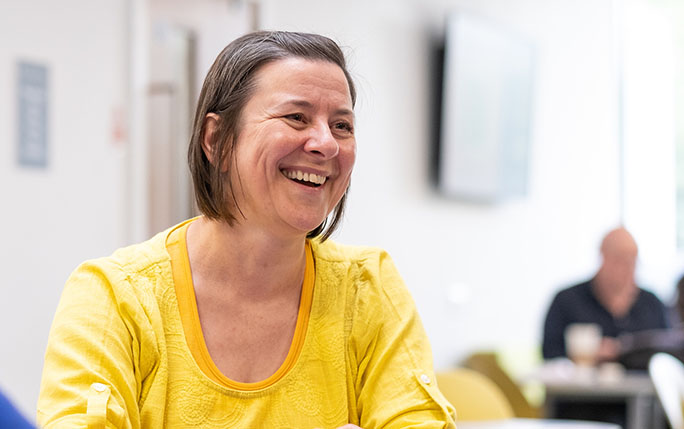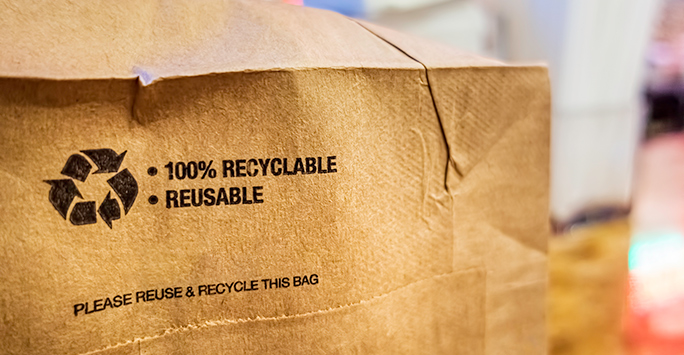
The University of Liverpool Management School (ULMS) is launching the new Centre for Sustainable Business (CSB) this October. Prior to opening its doors, Professor of Responsible Procurement and CSB Director, Professor Jo Meehan, gives an insight into how the centre will impact sustainable solutions for businesses.
The way we have been doing business and consuming products is unsustainable.
Potential solutions can be complex, costly, and equally problematic, leaving organisations and consumers in states of anxiety or inertia.
However, the cost of inaction is far greater and reduces our resilience.
The urgency and gravity of the sustainability challenge creates pressure to ‘do something’, but action must be balanced with meaningful debate on what we are trying to achieve, with reliable knowledge on the best way to achieve it.
While our decisions - as individuals or organisations - can feel insignificant, our research shows how sustainability can be scaled by connecting to the activities of others, in ways which respect diversity in places and people.
At the new CSB, our vision is to enable a thriving economic ecosystem that respects people and restores our natural world.
Systemic change is needed, but this requires tacking uncomfortable issues on overconsumption of natural resources, workers’ conditions, wealth distribution in global supply chains and motives behind decisions and business models.
This includes asking ‘how did we get here?’, as it is critical in understanding the root causes of the challenges we face and raises questions on corporate accountability, transparency, and how businesses are not only susceptible to harm, but can also cause harm.
There is scope for opportunity and optimism through collective action and our research provides evidence on different and fairer solutions.
Translating and sharing
Our research is at the forefront of debates on ‘business-not-as-usual’, reimagining how companies create net positive outcomes to restore our global socio-ecological systems.
However, businesses require easy and timely access to this knowledge to support their transition to eco-centric and socially-just business models.
We aspire to be a trusted learning hub for business leaders, civil society organisations, policy makers and consumers, interested in shaping solutions that integrate human rights and social concerns.
Drawing on evidence from firms around the world and from our business community, CSB are keen to showcase innovations in sustainability and amplify positive approaches by translating research into relevant and practical insights.
Debating and amplifying
The Centre will also provide opportunities for open debate on the world’s most pressing sustainability issues.
Respectful and inclusive debate can shape business agendas, inspire opportunity, establish research priorities, amplify the voices of the less powerful and identify blind spots.
We aim to build a network of ideas, knowledge and experience to share and leverage collective change.
Research priorities
The Centre’s research scope is diverse and covers connections between social, environmental and economic issues.
The aim is to inform urgent and responsible business transitions to net-zero, and ultimately net-positive, with human rights at its core.
We have identified three initial priority areas, where we have specific research expertise and where there is significant business and policy activity or challenges.
| Non-Financial Reporting & Corporate Accountability |
|---|
Non-financial reporting requires businesses to formally disclose information on social, environmental and human rights performance.
Countries around the world are ramping up Environmental, Social and Governance (ESG) reporting regimes, with many now mandating new non-financial reporting standards.
Increasingly, businesses are required to account for harms beyond their own operations, which marks a significant change in business accountability.
For example, the UK’s Modern Slavery Act requires reporting of forced labour risks within firms’ entire supply chains, and Double Materiality requires assessments of a firm’s impact on climate change and other environmental issues.
The CSB conducts world-leading research on many aspects of non-financial reporting and corporate accountability.
The evidence is particularly relevant to business leaders and policy makers, as it covers a broad range of themes, including:
- Supply chain transparency
- Discovery and disclosure strategies
- Risk management
- Social risks and reputation
- Market reactions to incidents
- Financial constraints
- Corporate governance
| Responsible Consumption & Circularity |
|---|
Responsible consumption is one of the United Nations Sustainable Development Goals and aims to reduce our use of finite natural resources while increasing resource efficiency.
Over-consumption leads to resource scarcity, price volatility and supply crises, which creates pressing commercial demands on businesses.
However, addressing supply crises through leveraging corporate power does not ‘resolve’ them and crucially heightens systemic fragility of people and places.
Traditional production models extract raw materials to make products that are consumed and thrown away – referred to as a linear ‘take, make, waste’ approach – and assume infinite supplies of raw materials, energy and labour.
A circular economy shifts to renewable energy and materials to have a restorative net positive impact on social standards and the natural world.
This model is designed to reduce consumption of finite resources by using waste as a raw material, extending product lifecycles by sharing, leasing, repairing and refurbishing, to keep existing materials in use for as long as possible.
CSB research covers:
- Developing circular supply chains
- Influencing consumption choices
- Income inequality and consumption patterns
- The sharing economy and poverty alleviation
- Food ecosystems
| Disruptive Technologies & Shaping Ecosystems |
|---|
Emerging technologies have the power to change how we do business, which brings opportunity, but also responsibility to rethink how we operate in ecocentric and socially just ways.
Data technology shows the complexity of our economic system and how it is entangled with other systems, for example the natural world, public health, transport, cultures and education.
Disruptive technology facilitates the shaping of business ecosystems, which, like natural ecosystems, require balance and diversity to thrive.
The CSB is working on agenda-shaping research that encourages us to rethink how ecosystems and technology can be used to generate net positive outcomes.
Research areas include:
- Disruptive technologies and inequality
- Power structures
- Drone technologies
- Food security
- Cyber-security
- Shaping futures and ecosystems
- Blockchain and cryptocurrencies
- Artificial Intelligence
- Scaling sustainability
The Centre for Sustainable Business’ launch on Tuesday 18 October 2022 coincides with ULMS 20th anniversary.
Contact busdev@liverpool.ac.uk to join our mailing list about the launch and other business development activities from ULMS.


